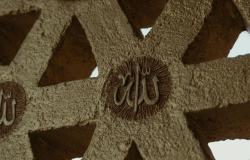
Considering the Islamic perspective on forced migration and displacement, along with the conceptual framework of Islamic social welfare instruments as tools for wealth redistribution to support those in need, this study explores the potential complementarity between Islamic and conventional financing in addressing refugees' basic needs and economic empowerment. Specifically, this research examines and compares programs implemented by the UNHCR Refugee Zakat Fund and the Islamic Development Bank (IsDB) to support Syrian refugees in Lebanon and Jordan from 2019 to 2022. To assess the effectiveness of different Islamic social welfare (ISW) instruments in responding to the Syrian refugee crisis, the study analyses projects financed by UNHCR and IsDB in both countries, focusing on the categories of beneficiaries targeted and the types of activities implemented. Which instruments are used by these two organisations, given their distinct mandates and approaches, in supporting Syrian refugees in Lebanon and Jordan? How are they collaborating to establish a shared platform to tackle the global refugee crisis? Can secular and religious forms of financing be considered complementary tools for sustainable financial support? The research addresses these questions and identifies the limits and potentials of using Islamic social welfare instruments as a sustainable tool for refugee financing.
Photo by Tima Miroshnichenko